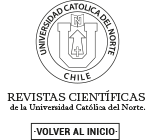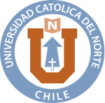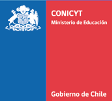(Re) territorialization in times of ‘citizen revolution’:
Petroleum, mining and rights of nature in Ecuador
DOI:
https://doi.org/10.22199/issn.0718-1043-2019-0030Keywords:
territory, governmentality, extractivism, rights of nature, epistemologyAbstract
The modernization program launched by the government of the so called ´Citizen Revolution´ in Ecuador illustrates the new strategies of global capital penetration and intensification towards new frontiers. Notwithstanding its anti-neoliberal discourse, the government project relies on the expansion of the extractive frontier as well on practices of homogenizing and disciplinary inclusion inside of the territories. The policy implementation of ´Millennium Communities’ and ´Millennium Schools´ is analyzed through the concept of governmentality, as a key instrument of spatial and symbolic (re) territorialization. We explore the cases of the indigenous community Cofán Dureno in the Ecuadorian Amazon and the parish Victoria del Portete in the southern highlands. The last section discusses the new responses of local-global alliances to respond to such capitalist expansion in new territories, by means of supporting the enactment of the Rights of Nature in the Ecuadorian Constitution. This ambiguous instrument brings the multiple meanings of nature underlying territorial conflicts into political discussion. The conclusion presents how Rights of Nature are a product of the interaction among actors of diverse geographical scales and cultural backgrounds. It is precisely in its multi-scalar reach and intercultural interaction where the potential of these rights can be found.
References
Alfaro, E. (2010). El ‘otro’ y la estética del poderío en la ‘revolución ciudadana’, artículo no publicado, Quito.
Alfaro, E. (2012). Entrevista a Humberto Cholango, presidente Confederación de Nacionalidades indígenas del Ecuador (CONAIE), Prensa. Asuntos indígenas y políticas públicas, 23 de marzo.
Agencia Andes (2014). Pañacocha es la segunda comunidad del milenio que se inaugura en la Amazonía de Ecuador gracias a los recursos petroleros. Agencia Andes, 16 de enero.
Anderson, B. (1983). Imagined Communities: Reflections on the Origin and Spread of Nationalism. London: Verso.
Ayala Mora, E. (2011). Del neoliberalismo al ‘Socialismo del Siglo XXI’. Dossier Ecuador. Observatorio Latinoamericano, 7. Buenos Aires: Universidad de Buenos Aires.
Baud, M., Koonings, K., Oostindie, G., Ouweneel, A., Silva, P. (1996). Etnicidad como estrategia en América Latina y el Caribe. Quito: Abya-Yala.
Baud, M., De Castro, F., Hogenboom, B. (2011). Environmental Governance in Latin America: Towards an Integrative Research Agenda. ERLACS, 90, 78-88.
Bebbington, A. (Ed.) (2007). Minería, movimientos sociales y respuestas campesinas: una ecología política de transformaciones territoriales. Lima: IEP CEPES, Centro Peruano de Estudios Sociales.
Bebbington, A., Bebbington, D.H. y Bury, J. (2010). Federating and Defending: Water, Territory and Extraction in the Andes. En Boelens, R., Getches, D., Guevara, A. (Eds.). Out of the mainstream: The politics of water rights and identity in the Andes (pp. 307-327). London: Earthscan.
Beristain, C., Páez, D. y Fernández, I. ( 2009). Las Palabras de la Selva. Bilbao: Hegoa.
Boelens, R. (2014). Cultural politics and the hydrosocial cycle: Water, power and identity in the Andean highlands. Geoforum, 57, 234-247.
Boelens, R. (2015a). Water, Power and Identity. The Cultural Politics of Water in the Andes. London/Washington DC: Routledge/Earthscan.
Boelens, R. (2015b). Water Justice in Latin America. The Politics of Difference, Equality, and Indifference. Amsterdam: CEDLA and University of Amsterdam.
Boelens, R., Hoogesteger, J., Swyngedouw, E., Vos, J., Wester P. (2016). Hydrosocial territories: a political ecology perspective. Water International, 41, 1-14.
Bonilla, O., Maldonado, P., Silveria, M., Bayón, M. (2016). Nudos territoriales críticos en Ecuador: dinámicas, cambios y límites en la reconfiguración territorial del Estado. GeoGraphos, 84(7), 66-103.
Correa, R. (2013, septiembre 13). Inauguración de Obra e Inicio del año lectivo 2013-2014 en Morona Santiago [online]. Recuperado de https://www.youtube.com/watch?v=2xGQret8UEU
Correa, R. (2013, octubre 1). Inauguración Comunidad del Milenio Playas de Cuyabeno [online]. Recuperado de https://www.youtube.com/watch?v=7nwxKsMj_yc
De Castro, F., Van Dijck, P., Hogenboom, B. (2014). The Extraction and Conservation of Natural Resources in South America. Cuadernos CEDLA, 27.
De la Cadena, M. (2010). Indigenous cosmopolitics in the Andes: conceptual reflections beyond “Politics”. Cultural Anthropology, 25, 334-370.
De la Torre, C. (2013). In the Name of the People: Democratization, Popular Organizations, and Populism in Venezuela, Bolivia, and Ecuador. European Review of Latin American and Caribbean Studies, 95, 27-48.
Ecuador en Vivo (2015). Correa sobre negativa a Ley 010 [online]. Ecuador en Vivo, 7 de febrero. Recuperado de http://www.ecuadorenvivo.com/politica/83-videos/27007-correa-sobre-pedido-de-incremento-por-ley-010-a-los-gads-que-no-apoyan-la-explotacion-petrolera-y-minera-no-les-voy-a-dar-ni-20-centavos.html
Ecuador Estratégico (2011). Misión y visión [online]. Recuperado de http://www.ecuadorestrategicoep.gob.ec/institucion/mision-vision
El Universo (2014). Comunidades del milenio se replicarán en toda la Amazonia con rentas petroleras, según gobierno. El Universo, 16 de enero.
Escobar, A. (2009). Latin America at a Crossroads. Alternative modernizations, post-liberalism, or post-development? Cultural Studies, 24, 1-61.
Fletcher, R. (2010). Neoliberal Environmentality: Towards a Poststructuralist Political Ecology of the Conservation Debate. Conservation and Society, 8(3), 171-181.
Foucault, M. (1991) [1978]. Governmentality. En Burchell, G., Gordon, C., Miller, P. (Eds.). The Foucault Effect: Studies in Governmentality (pp. 87-104). Chicago, IL: University of Chicago Press.
Foucault, M. (1980). Power/Knowledge: selected interviews and other writings 1972-1978. Gordon, C. (Ed.). New York: Pantheon Books.
Foucault, M. (2007). Security, Territory, Population: Lectures at the Collège de France 1977-1978. Sellenart, M., Burchell, G. (Eds.). New York, NY: Palgrave Macmillan.
Foucault, M. (2008). The birth of biopolitics. New York, NY: Palgrave Macmillan.
Hobsbawm, E. (1983). The Invention of Tradition. Cambridge, MA: Cambridge University Press.
Hogenboom, B. (2012). Depoliticized and Repolitiziced Minerals in Latin America. Journal of Developing Societies, 28(2),133-158.
Hoogesteger, J., Boelens, R., Baud, M. (2016). Territorial pluralism: water users’ multi-scalar struggles against state ordering in Ecuador’s highlands. Water International, 41(1), 91-106.
Latour, B. (1993). We have never been modern. Cambridge, MA: Harvard University Press.
Larrea, G. (2009). Revolución Ciudadana. Quito: Editorial Ecuador F.B.T.
Muyolema, A. (2015). El Carácter Mandatorio de la Ley y la Representación de las Nacionalidades Indígenas en el sistema de educación Intercultural Bilingüe. Lineadefuego.info, 8 de septiembre.
Ospina-Peralta, P. (2011). La participación ciudadana en el proyecto de Estado de Rafael Correa. Dossier Ecuador. Observatorio Latinoamericano, 7. Buenos Aires: Universidad de Buenos Aires.
Pacari, S. (2015). Entrevista en Contacto Directo, TV, Ecuavisa, 26 de agosto.
Patterson, T. (1997). The Inka Empire: The Formation and Disintegration of a Precapitalist State. Oxford and New York: Berg Press.
Pérez Guartambel, C. (2012). Agua u Oro. Kimsacocha, la Resistencia por el Agua. Universidad Estatal de Cuenca, Cuenca.
Radcliffe, S. (2011). Development for a postneoliberal era? Sumak Kawsay, living well and limits to decolonization in Ecuador. Geoforum, 43, 240-249.
Secretaría de Planificación y Desarrollo-Senplades (2013). Plan Nacional para el Buen Vivir 2013-2017. Quito: Senplades.
Scott, J. (1998). Seeing like a State. New Haven and London: Yale University Press.
Sistemas Comunitarios de Agua del Azuay, 2009. Demanda de Inconstitucionalidad por la aprobación de la Ley Minera. Presentada el 31 de marzo del 2009. Recuperado de http://www.derecho-ambiental.org/Derecho/Documentacion/Demanda_Grupos_Azuay_Ley_Mineria.pdf
Swyngedouw, E. (2011). Nature does not exist! Sustainability as Symptom of a Depoliticized Planning. Urban, 1, 41-66.
Torres, N. (2015). La declaratoria del Macizo del Cajas como reserva de la biosfera y la minería a gran escala. Posibilidades y contradicciones en el caso de Quimsacocha (Tesis de Maestría en Desarrollo Territorial Rural), Flacso Ecuador.
Unda, M. (2015, junio 19). Análisis de Coyuntura Junio [online]. Recuperado de https://www.youtube.com/watch?v=xzS-aoYM8cc
Valdivia, G. (2007). The “Amazonian Trial of the Century”: Indigenous Identities, Transnational Networks, and Petroleum in Ecuador. Alternatives, 32, 41-72.
Valladares, C., Boelens, R. (2017). Extractivism and the Rights of Nature: Governmentality, ‘convenient communities’ and epistemic pacts in Ecuador, Environmental Politics, 26(6), 1015-1034.
Valladares, C., Boelens, R. (2019). Mining for Mother Earth. Governmentalities, Sacred Waters and the Rights of Nature in Ecuador. Geoforum, 100, 68-79.
Villavicencio, A. (2015). La nano-alfalfa y el cambio de la matriz productiva: más verdades sobre Yachay [online]. Plan V, 24 de septiembre. Disponible en http://www.planv.com.ec/investigacion/investigacion/la-nano-alfalfa-y-el-cambio-la-matriz-productiva-mas-verdades-sobre
Vistazo (2014). Los cuatro cerebros de Yachay. Vistazo, 12-17. 10 de abril.
Viteri, F. (2015). Entrevista en Contacto Directo. TV, Ecuavisa. 24 de agosto.
Wilson, J., Bayón, M., Diez, H. (2015). Post-neoliberalism and planetary urbanization in the Ecuadorian Amazon. Revista Economía, 67, 29-57.
Published
How to Cite
Issue
Section

All works published in Revista Estudios Atacameños (ISSN on line:0718-1043) Revista Estudios Atacameños Creative Commons International 4.0 attribution (CC BY 4.0) licence.
Authors remain the owners of their work and may republish their articles elsewhere without having to request permission, as long as they indicate that the work was originally published in Revista Estudios Atacameños (ISSN on liine:0718-1043).

















